Tenuta di Artimino review: a Tuscan retreat fit for a Medici
Situated on an Italian estate, this Meliá Collection Hotel has a unique history
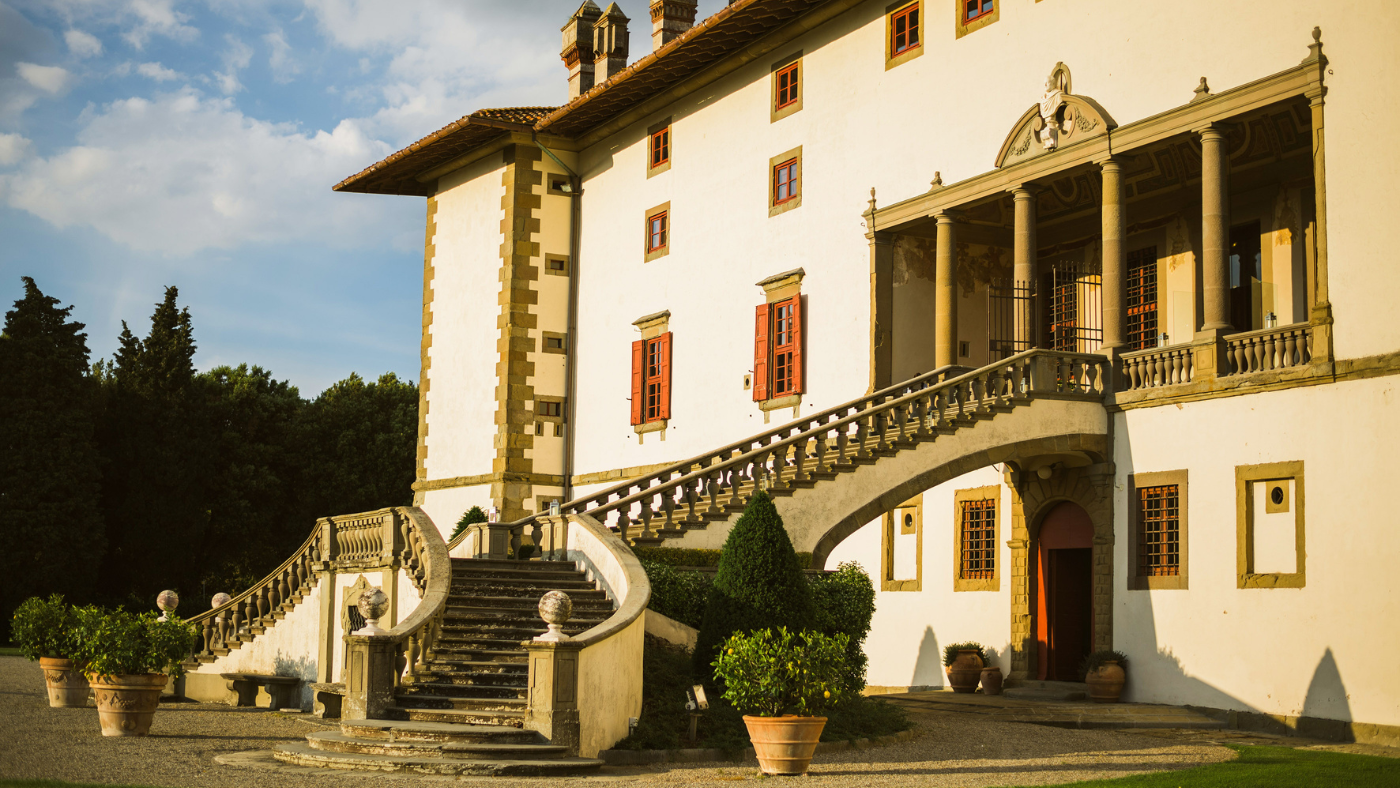
A free daily email with the biggest news stories of the day – and the best features from TheWeek.com
You are now subscribed
Your newsletter sign-up was successful
It’d be hard to visit Tuscany and not bump into some legacy of the Medici family along the way, but few are lucky enough to take up temporary residency in one of the dynasty’s former properties.
Tenuta di Artimino offers visitors just that opportunity. Perched on a hilltop overlooking the nearby Artimino village, Villa La Ferdinanda is situated in the middle of the estate’s grounds with views over the olive groves and vineyards that characterise the Tuscan landscape. The former hunting lodge was built as a countryside getaway from the bustle of Florence – just 20km away – for Ferdinando I de Medici, in 1596.
A hotel has existed in the former stable and servants’ quarters of the Villa for some time, but earlier this year it became part of Meliá Collections’ rapidly expanding group – one which champions “an independent spirit and unmistakable sense of place”. It would be hard to question that ethos when one arrives at Tenuta di Artimino.
The Week
Escape your echo chamber. Get the facts behind the news, plus analysis from multiple perspectives.

Sign up for The Week's Free Newsletters
From our morning news briefing to a weekly Good News Newsletter, get the best of The Week delivered directly to your inbox.
From our morning news briefing to a weekly Good News Newsletter, get the best of The Week delivered directly to your inbox.
Why stay here?
A short drive from Florence brings guests to Villa La Ferdinanda’s tree-lined driveway. Situated within a Unesco World Heritage site, the hotel is tucked to the side and just in front of the former hunting lodge, but behind typical Italian gardens, to provide privacy and unspoilt views for guests.
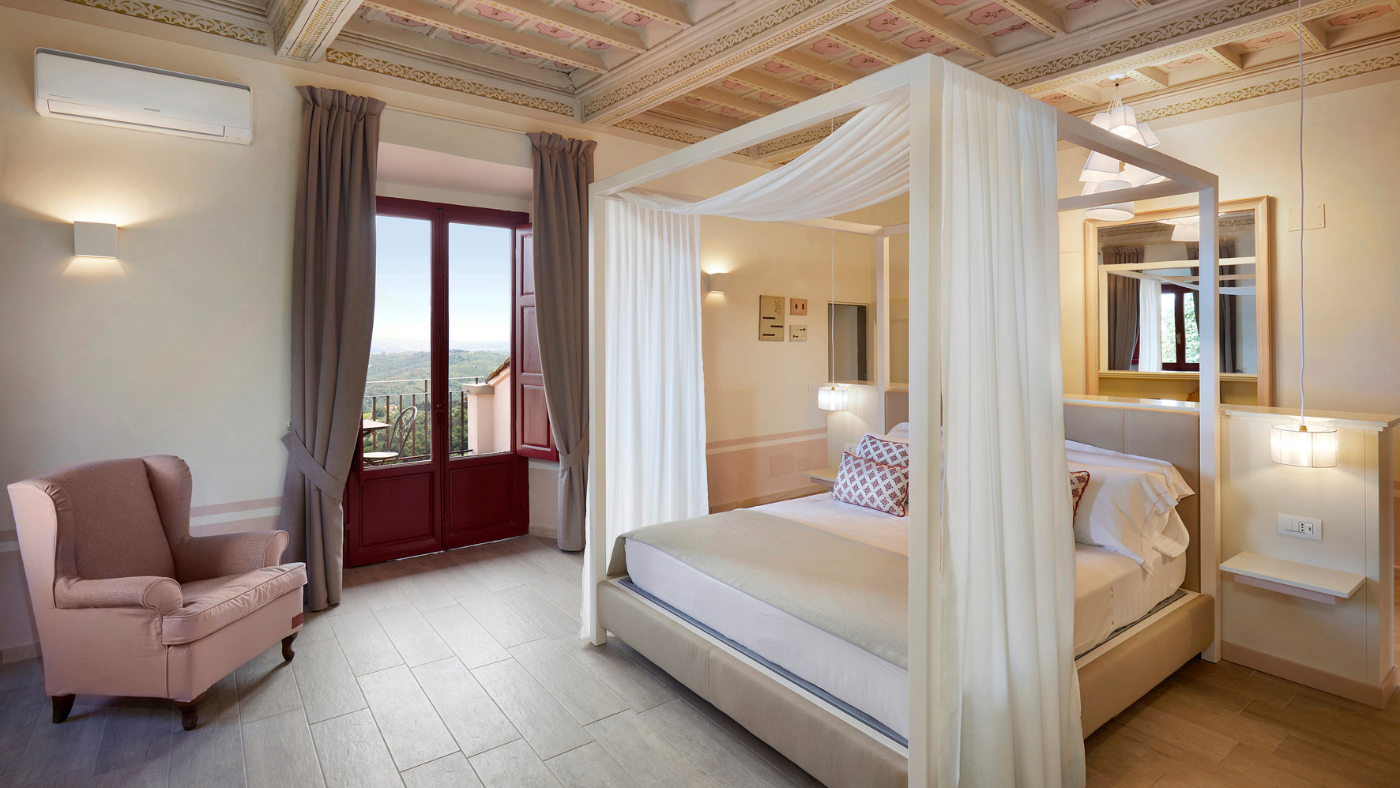
If the scene wasn’t quite set by this point, the colonnade walkways lining the periphery of the two-floor hotel and impressive arched doorways that grace the entrance to each room will confirm that Tenuta di Artimino is somewhere quite remarkable. The building’s original features take centre stage, with wooden-beamed ceilings and huge stone fireplaces masterfully complemented by comfortable furnishings, beds worthy of Tuscan nobility and spacious modern bathrooms.
The hotel’s remoteness may not inspire digital nomads, but some will be very grateful for that. With little but birdsong to disturb one’s day, guests can truly unwind and unplug from modern life. Many of the team at the hotel have also worked there for a number of years, giving the entire enterprise a very welcoming atmosphere.
Eating and drinking
Many non-natives are pretty confident in their knowledge of Italian cuisine – but guests are likely to learn something new under the guidance of executive chef Michela Bottasso. Little did I know, for instance, that onion soup was in fact not a creation of the French, and that it was, in fact, transported to France by Catherine de Medici in the 16th-century. So too was the classic culinary combination of duck and orange, a dish originating in the Florence court before it found new fans in King Henry II’s France.
A free daily email with the biggest news stories of the day – and the best features from TheWeek.com
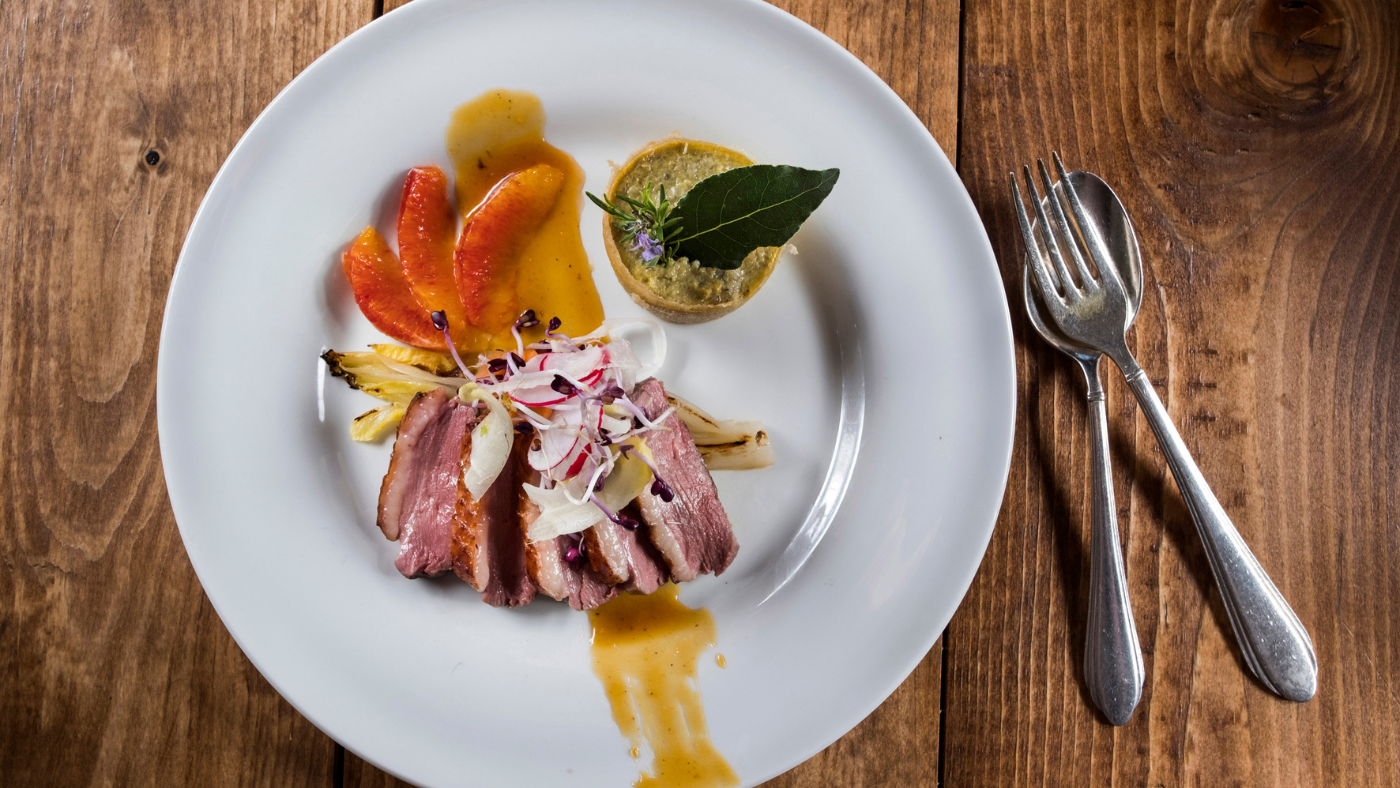
A French guest may choose to contest the Italian roots of those particular dishes, but after several plates of Bottasso’s food, they would be ill-advised to upset this chef. Using locally-sourced ingredients, Biagio Pignatta’s kitchen serves recipes inspired by tradition. Here, simplicity does not correlate to an unexciting or unambitious menu – it instead lets the recipes speak boldly for themselves.
Guests can go for the typical options of primi, secondi and dolci at the hotel restaurant, but I’d recommend opting for the “Gourmet Experience” – three courses and wine pairings followed by dessert wine and almond biscuits, a local delicacy.
What to do
If you can, be sure to book on to a guided tour of the former Medici residence and jewel of Tenuta di Artimino, Villa La Ferdinanda itself. It’s filled with unexpected splendours – including an original rotisserie device installed in the kitchen by none other than Leonardo da Vinci. As a private residence, tours need to be organised well in advance – or visitors can look out for open days. The Villa can also be booked for private events and weddings.
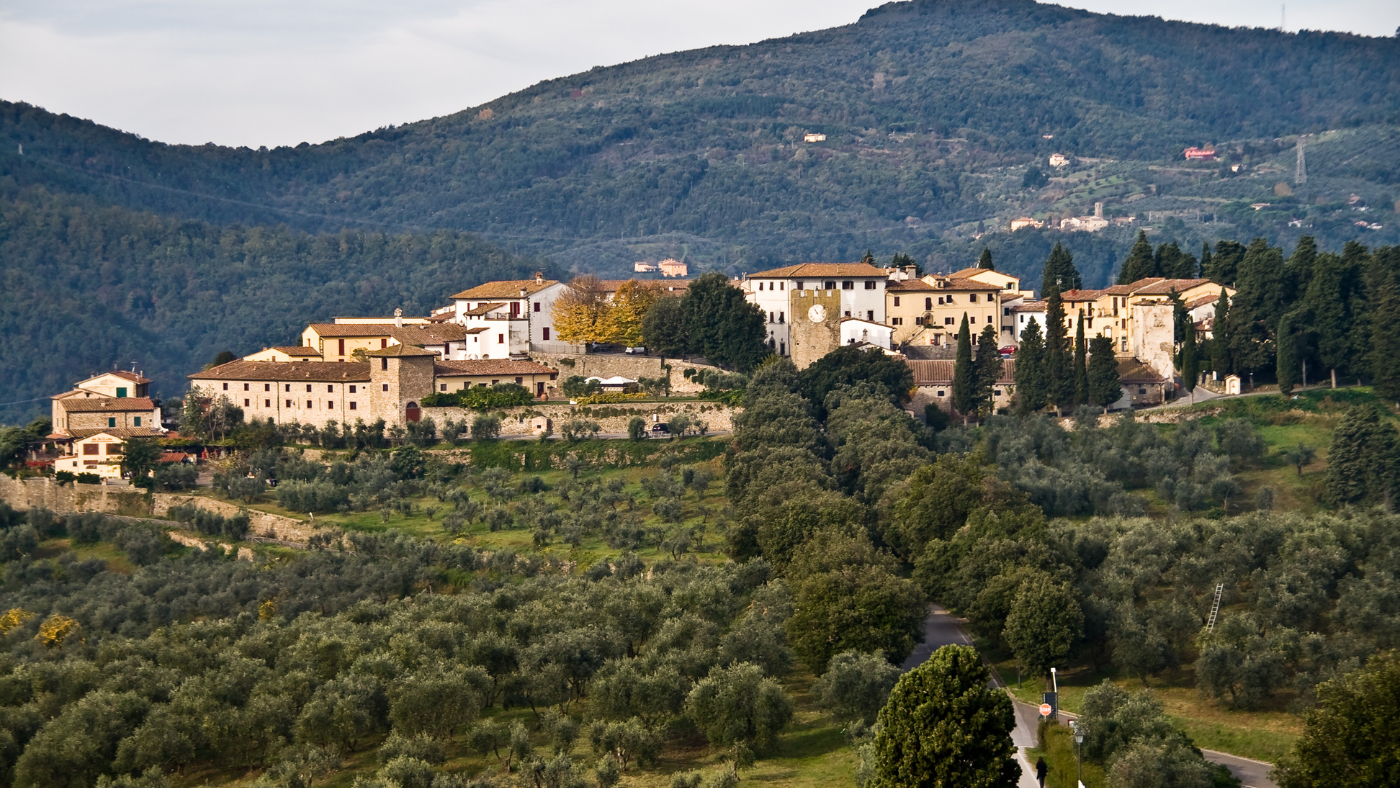
The hotel pool is a secluded spot to enjoy the Tuscan sunshine in the warmer months – although the staff have been known to open it on occasion in winter too, at the request of slightly braver swimmers. For those looking to explore the vineyard, there are options to book a visit to the estate’s winery, arrange a tasting with a sommelier or enjoy a picnic among the vines.
Anyone looking to take their culinary re-education to the next level can also book a cooking course at the hotel to finesse the more technical skills involved in preparing the nation’s best-loved staples. Otherwise, Artimino village is a short walk from the estate and has several small eateries, a gelato stop, and an Etruscan museum for those looking to dive even further into the region’s history.
The next chapter
As this hotel’s global network grows through its Meliá membership, so too does its local footprint. In the local village, Il Borgo will open soon – a new complex with dozens more rooms and suites for guests to stay, including a pool, outdoor terraces and more of the luxurious accommodation that Villa La Ferdinanda’s closest neighbours enjoy.
Rooms start from £250 a night; melia.com
Julia O'Driscoll is the engagement editor. She covers UK and world news, as well as writing lifestyle and travel features. She regularly appears on “The Week Unwrapped” podcast, and hosted The Week's short-form documentary podcast, “The Overview”. Julia was previously the content and social media editor at sustainability consultancy Eco-Age, where she interviewed prominent voices in sustainable fashion and climate movements. She has a master's in liberal arts from Bristol University, and spent a year studying at Charles University in Prague.
-
 How the FCC’s ‘equal time’ rule works
How the FCC’s ‘equal time’ rule worksIn the Spotlight The law is at the heart of the Colbert-CBS conflict
-
 What is the endgame in the DHS shutdown?
What is the endgame in the DHS shutdown?Today’s Big Question Democrats want to rein in ICE’s immigration crackdown
-
 ‘Poor time management isn’t just an inconvenience’
‘Poor time management isn’t just an inconvenience’Instant Opinion Opinion, comment and editorials of the day
-
 A dreamy long weekend on the Amalfi Coast
A dreamy long weekend on the Amalfi CoastThe Week Recommends History, pasta, scenic views – this sun-drenched stretch of Italy’s southern coast has it all
-
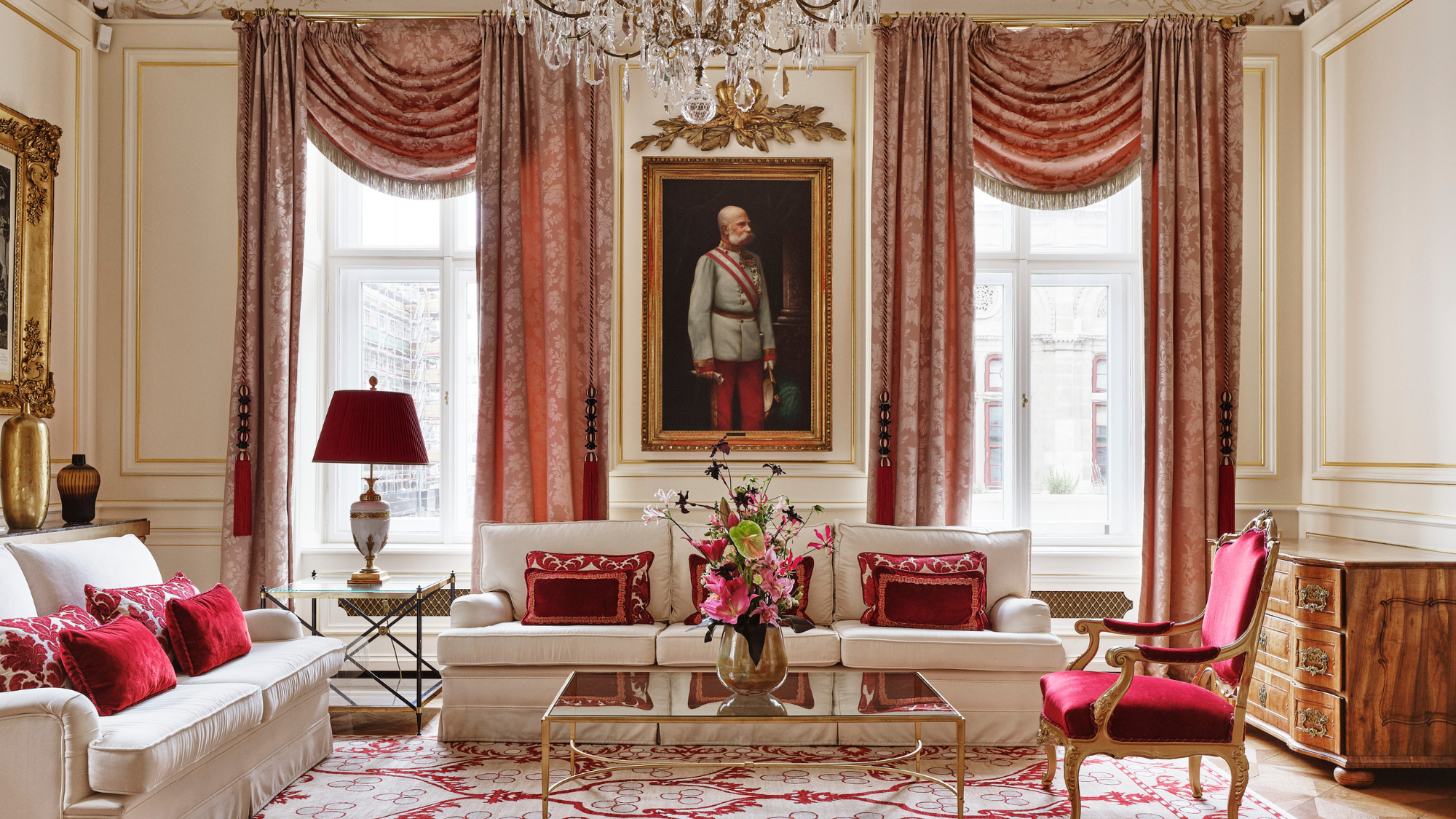 Hotel Sacher Wien: Vienna’s grandest hotel is fit for royalty
Hotel Sacher Wien: Vienna’s grandest hotel is fit for royaltyThe Week Recommends The five-star birthplace of the famous Sachertorte chocolate cake is celebrating its 150th anniversary
-
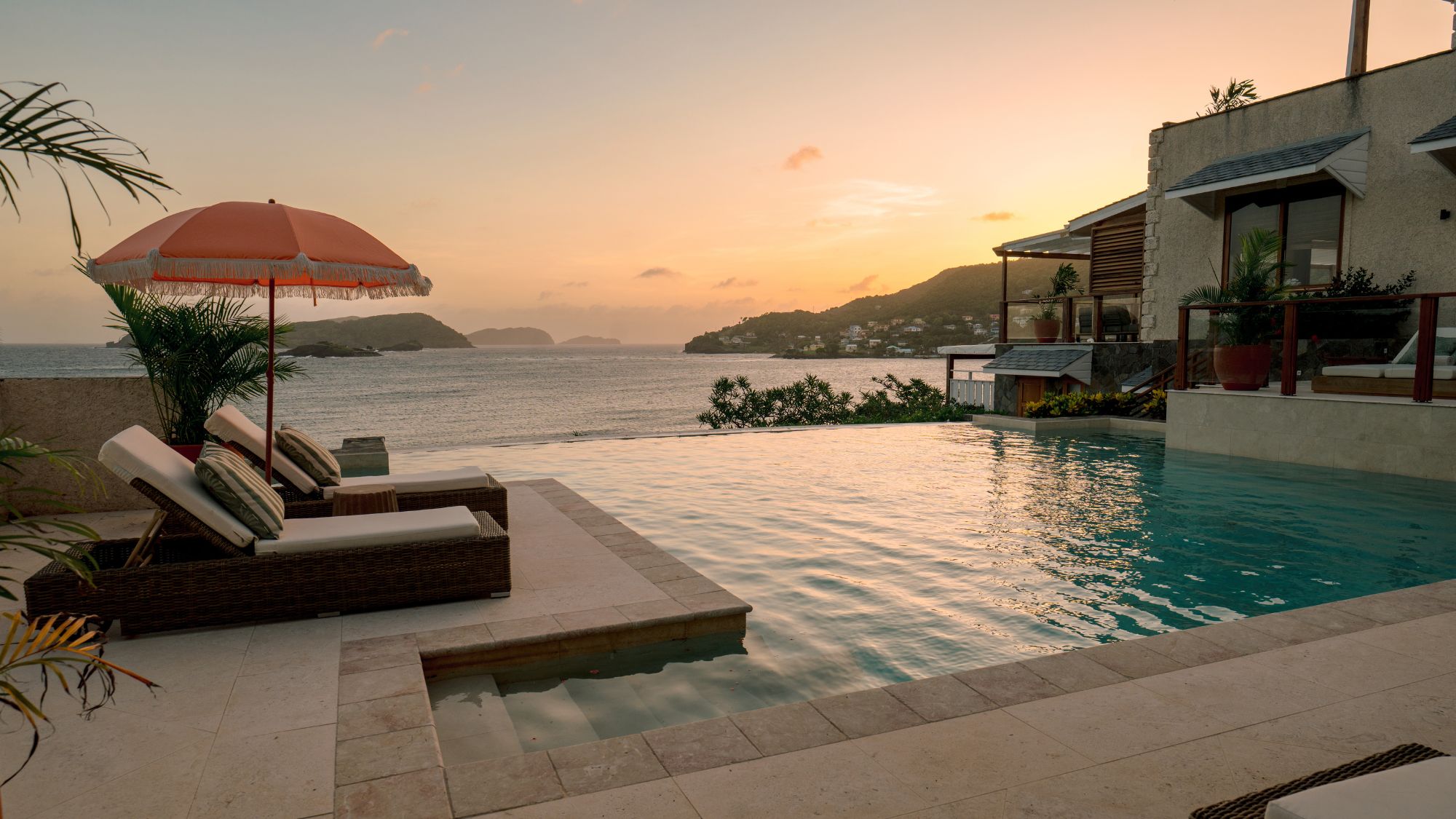 Rock Villa, Bequia: a hidden villa on an island epitomising Caribbean bliss
Rock Villa, Bequia: a hidden villa on an island epitomising Caribbean blissThe Week Recommends This gorgeous property is the perfect setting to do absolutely nothing – and that’s the best part
-
 Villa Treville Positano: a glamorous sanctuary on the Amalfi Coast
Villa Treville Positano: a glamorous sanctuary on the Amalfi CoastThe Week Recommends Franco Zeffirelli’s former private estate is now one of Italy’s most exclusive hotels
-
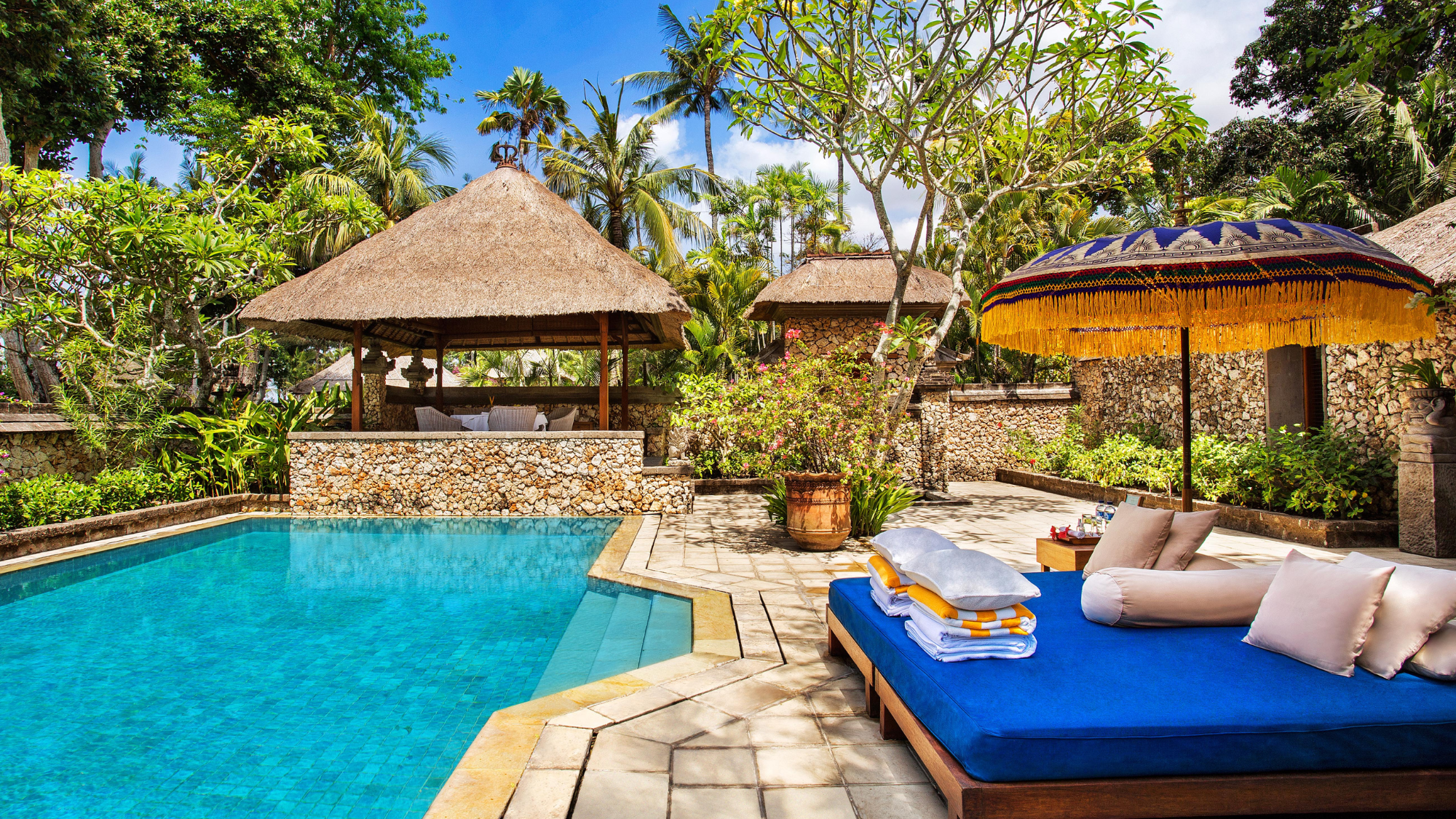 The Oberoi Beach Resort, Bali: a calm retreat in the heart of Seminyak
The Oberoi Beach Resort, Bali: a calm retreat in the heart of SeminyakThe Week Recommends Tradition meets modernity at this serene beachfront resort
-
 Six sensational hotels to discover in 2026
Six sensational hotels to discover in 2026The Week Recommends From a rainforest lodge to a fashionable address in Manhattan – here are six hotels that travel journalists recommend for this year
-
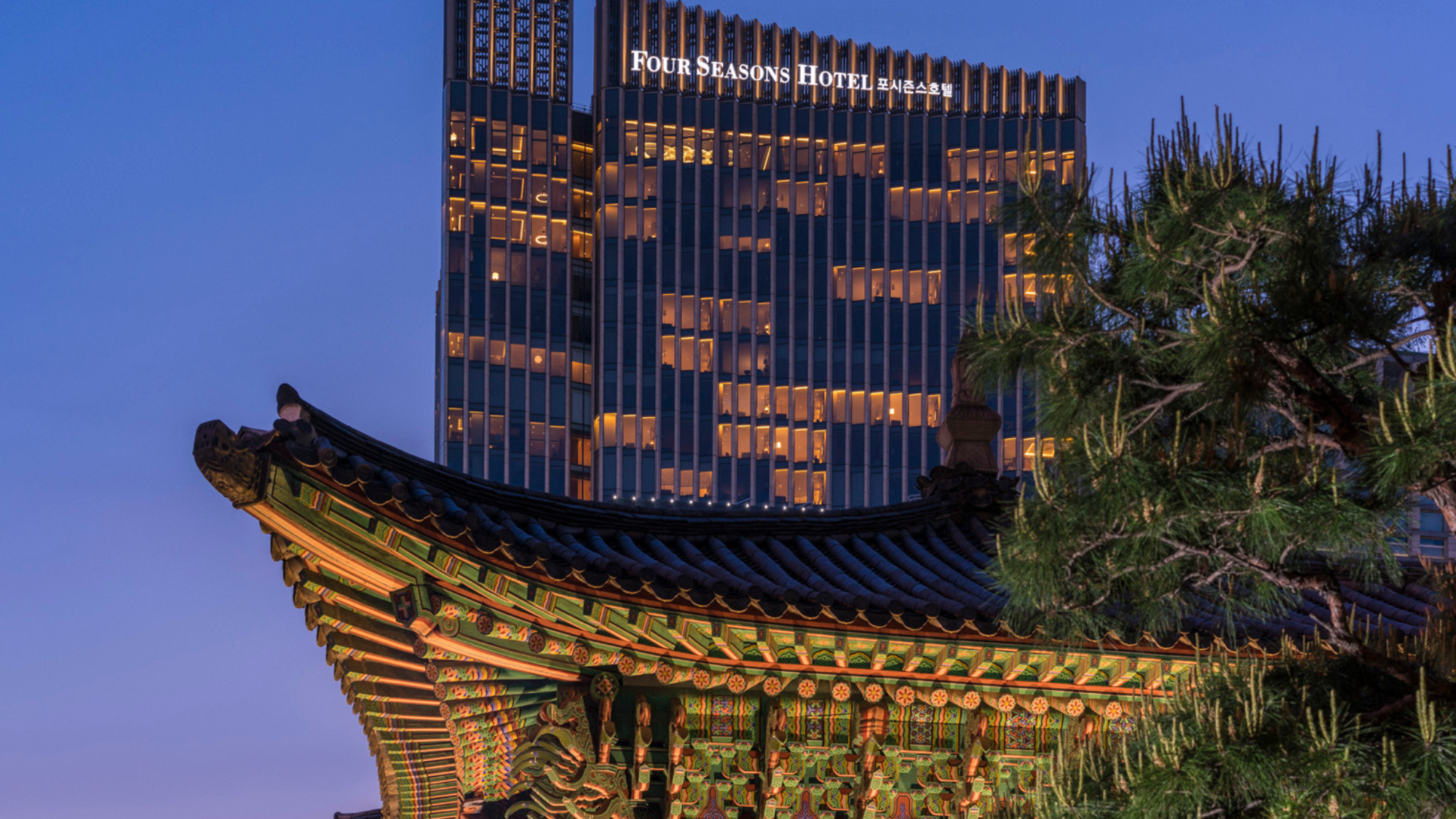 Four Seasons Seoul: a fascinating blend of old and new in South Korea
Four Seasons Seoul: a fascinating blend of old and new in South KoreaThe Week Recommends Located right in the heart of the action, this classy hotel is the perfect base to explore the capital
-
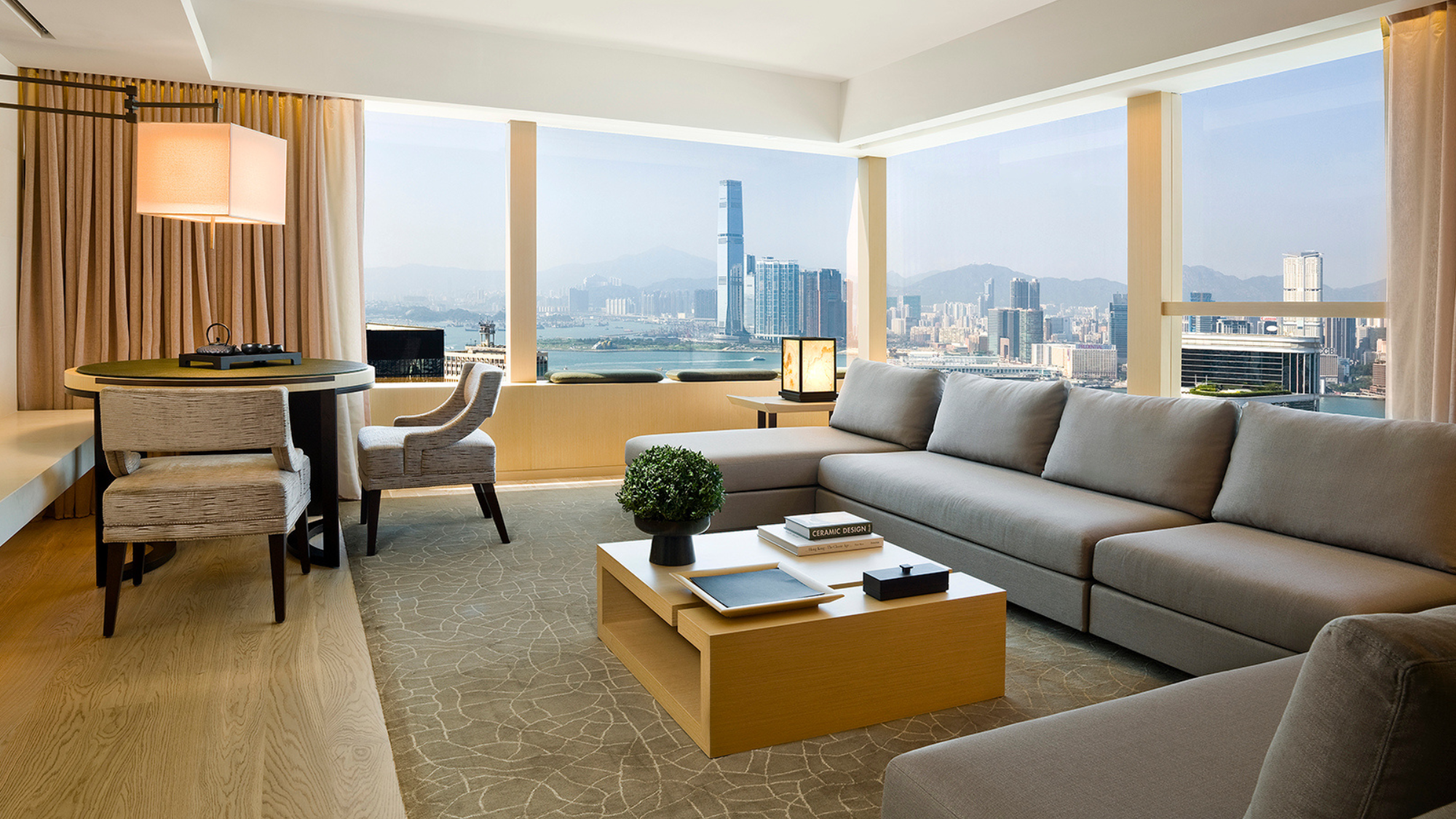 Upper House Hong Kong: a serene sanctuary in the bustle of the city
Upper House Hong Kong: a serene sanctuary in the bustle of the cityThe Week Recommends Panoramic harbour views and super-stylish interiors elevate this luxury hotel to another level